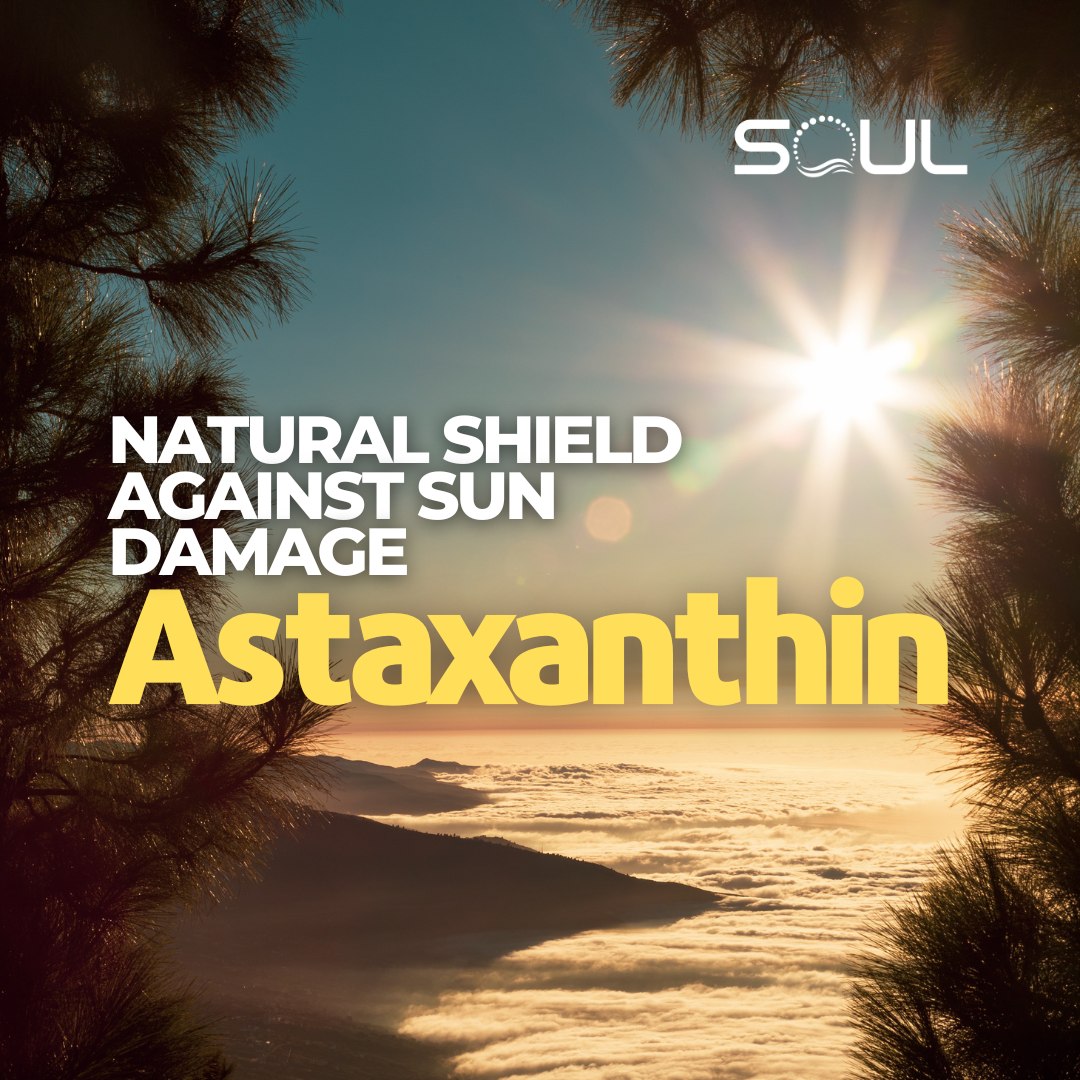
Astaxanthin: Nature’s Guardian in the Battle Against UV Damage
The sun—it's life-giving, warm, and invigorating. It draws us outdoors, inspires joy, and brings our skin to life with a golden touch. But, as every experienced marketer knows, there’s always a cost to a thrill. In this case, prolonged exposure to the sun’s ultraviolet (UV) rays comes with a host of unwanted baggage: sunburn, premature aging, and an increased risk of skin cancer.
Fortunately, in nature’s own grand marketing campaign, there’s an unexpected superhero working tirelessly beneath the surface: astaxanthin. Found naturally in algae, and the seafood that feast on it, this antioxidant powerhouse offers robust skin protection against the sun’s harshest side effects.
The Superhero Antioxidant that Fights Free Radicals
Here’s the inside scoop on sun exposure: every time UV rays touch your skin, they generate free radicals. These unstable molecules are the equivalent of rowdy vandals, causing oxidative stress and wreaking havoc on your cells. Think of free radicals as the amateur saboteurs of your skin’s wellness campaign, directly responsible for sunburn, wrinkles, and aging skin.
Astaxanthin steps into this mess like a bouncer at a party that’s gotten out of hand. It’s one of the most potent antioxidants ever discovered, working relentlessly to neutralize these free radicals before they can harm your skin. Through mechanistic studies, researchers have observed how astaxanthin not only scavenges these unruly molecules but also inhibits their formation from the get-go. It’s akin to having an experienced PR team cleaning up the chaos before it escalates.
Cooling the Flames: Astaxanthin’s Anti-Inflammatory Prowess
But sun exposure doesn’t stop at generating free radicals. UV rays also trigger an inflammatory response, leaving your skin red, swollen, and irritated. Inflammation, left unchecked, sets the stage for long-term damage. Luckily, astaxanthin is also a potent anti-inflammatory agent. Picture it as a cooling balm on a corporate crisis; it steps in, reduces the heat, and calms the inflamed situation.
Astaxanthin's ability to down-regulate pro-inflammatory cytokines means it directly interrupts the inflammation cascade triggered by UV radiation. It’s not just providing a superficial solution—this antioxidant dives deep, aiding your skin’s healing process from within. This not only relieves symptoms like redness and swelling but accelerates overall recovery, restoring balance to your skin.
DNA Protection: Guarding Your Genetic Blueprint
Now let’s address the big concern: DNA damage. Prolonged exposure to UV radiation can cause mutations in your skin cells, significantly increasing the risk of skin cancer. This is where astaxanthin plays the role of a meticulous project manager, actively safeguarding your genetic blueprint. It doesn’t just sit back and hope for the best. Instead, it inhibits the formation of reactive oxygen species (ROS), those sinister molecules responsible for DNA damage, and even upregulates the activity of DNA repair enzymes.
Simply put, astaxanthin helps your skin recover from the inevitable slip-ups caused by too much sun, minimizing the risk of permanent damage and steering your cells back on track. In the grand scheme, it’s the quality control agent ensuring your body’s factory runs smoothly, even under UV pressure.
Preserving Collagen: The Key to Youthful Resilience
You’ve probably heard of collagen—it’s the structural protein that keeps skin firm, elastic, and youthful. Think of it as the foundational architecture of your skin. Yet, prolonged sun exposure is the enemy of collagen, leading to degradation, loss of elasticity, and, ultimately, sagging skin.
Astaxanthin, however, understands the importance of brand integrity. It prevents collagen breakdown by directly inhibiting the enzymes responsible for its degradation and simultaneously promoting collagen synthesis. In other words, it’s bolstering your skin’s scaffolding, keeping it resilient and youthful in the face of UV adversity.
Moisturization: Nourishing Your Skin’s Vitality
Finally, there’s the issue of hydration. Prolonged sun exposure can dehydrate your skin, causing dryness and flakiness. This is where astaxanthin shines yet again. By enhancing the skin’s natural barrier function, it reduces water loss and helps retain moisture within the deeper layers of the skin. It’s not just about hydration—it’s about revitalization, ensuring your skin maintains its smoothness and vitality.
A Balanced Approach to Sun Protection
Of course, astaxanthin isn’t a magic bullet or a one-stop solution. While it offers a myriad of benefits, it should be part of a holistic sun protection strategy. Sun safety practices like wearing protective clothing, applying broad-spectrum sunscreen, seeking shade, and using sunglasses remain fundamental.
But with astaxanthin on your side, you’re no longer just fighting to protect your skin; you’re giving it the resources it needs to thrive. As you bask in the sun’s warmth, embrace the power of this remarkable antioxidant and walk with confidence, knowing you’ve got a secret weapon in your arsenal.
These statements have not been evaluated by the Food and Drug Administration. This product is not intended to diagnose, treat, cure or prevent any disease. This article is for informational purposes only and is not a substitute for professional medical advice. Always consult your healthcare provider regarding any health concerns or before starting new supplements.